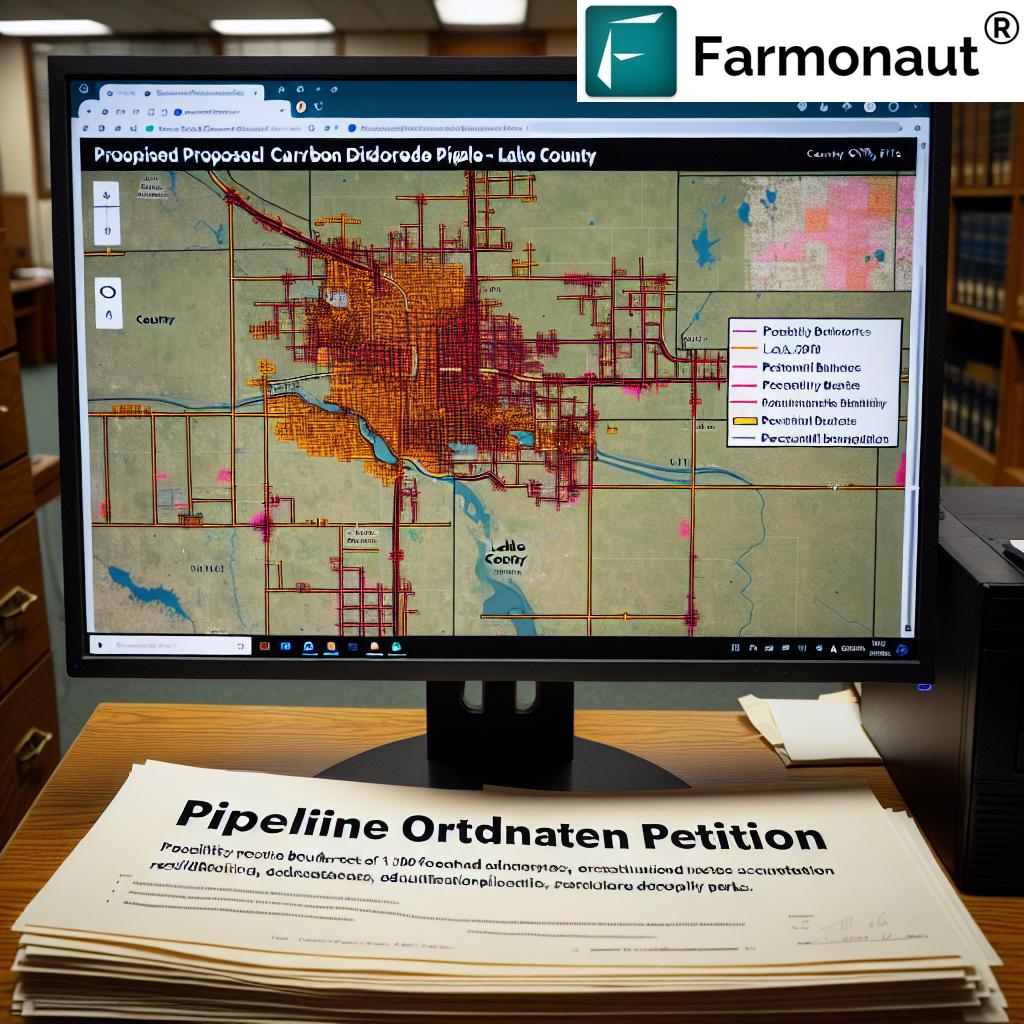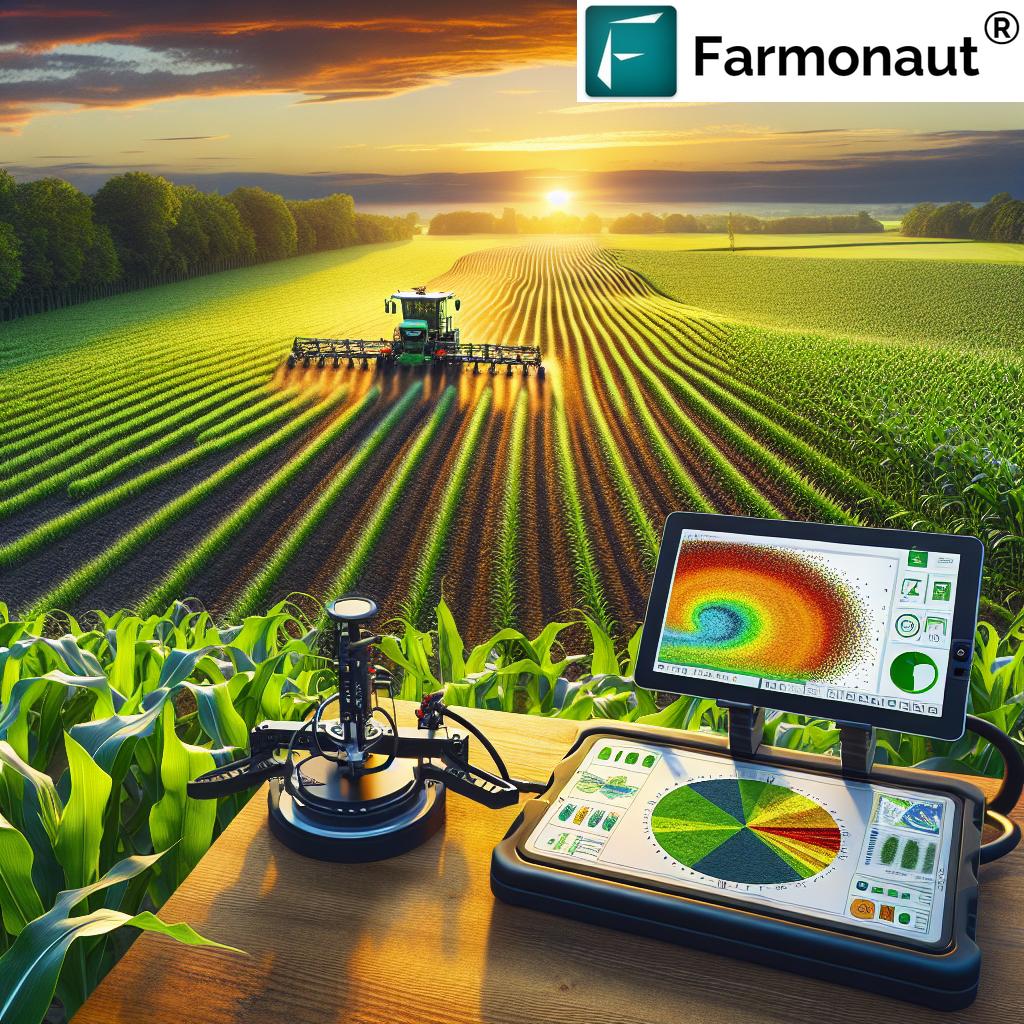🌱 Introduction to JEEVN AI: A Game-Changer for Arkansas Soybean Farmers
In the heart of the Natural State, where soybeans reign as the top row crop, Arkansas farmers are constantly seeking ways to optimize their yields and overcome challenges. Enter JEEVN AI, an innovative solution by Farmonaut Technologies that’s set to transform the landscape of soybean farming in Arkansas. This cutting-edge tool harnesses the power of Farmonaut’s Satellite-AI Based Farm Intelligence to provide precise, actionable insights tailored to the unique needs of Arkansas soybean growers.
With Arkansas producing over 150 million bushels of soybeans annually across 3 million acres, the potential impact of JEEVN AI on the state’s agricultural economy is immense. This powerful AI system integrates satellite intelligence, local weather data, and farm-specific information to deliver recommendations that could help Arkansas farmers push their average yield of 50 bushels per acre to new heights.
🛰️ How JEEVN AI Works: Bringing Space-Age Tech to Arkansas Fields
JEEVN AI’s approach to farm management is akin to having a team of experts constantly monitoring your soybean fields. By leveraging Farmonaut’s Satellite-AI Based Farm Intelligence, the system provides insights that are particularly valuable for Arkansas’s diverse growing conditions, from the Delta’s rich alluvial soils to the uplands of the Ozarks.
The AI system integrates multiple data sources:
- Satellite imagery of Arkansas farmlands
- Local weather data from across the state
- Soil composition information
- Historical crop performance data
This comprehensive approach allows JEEVN AI to offer tailored advice that takes into account the specific challenges faced by Arkansas soybean farmers, such as the state’s hot, humid summers and the threat of sudden weather changes that can affect the Mississippi Delta region.
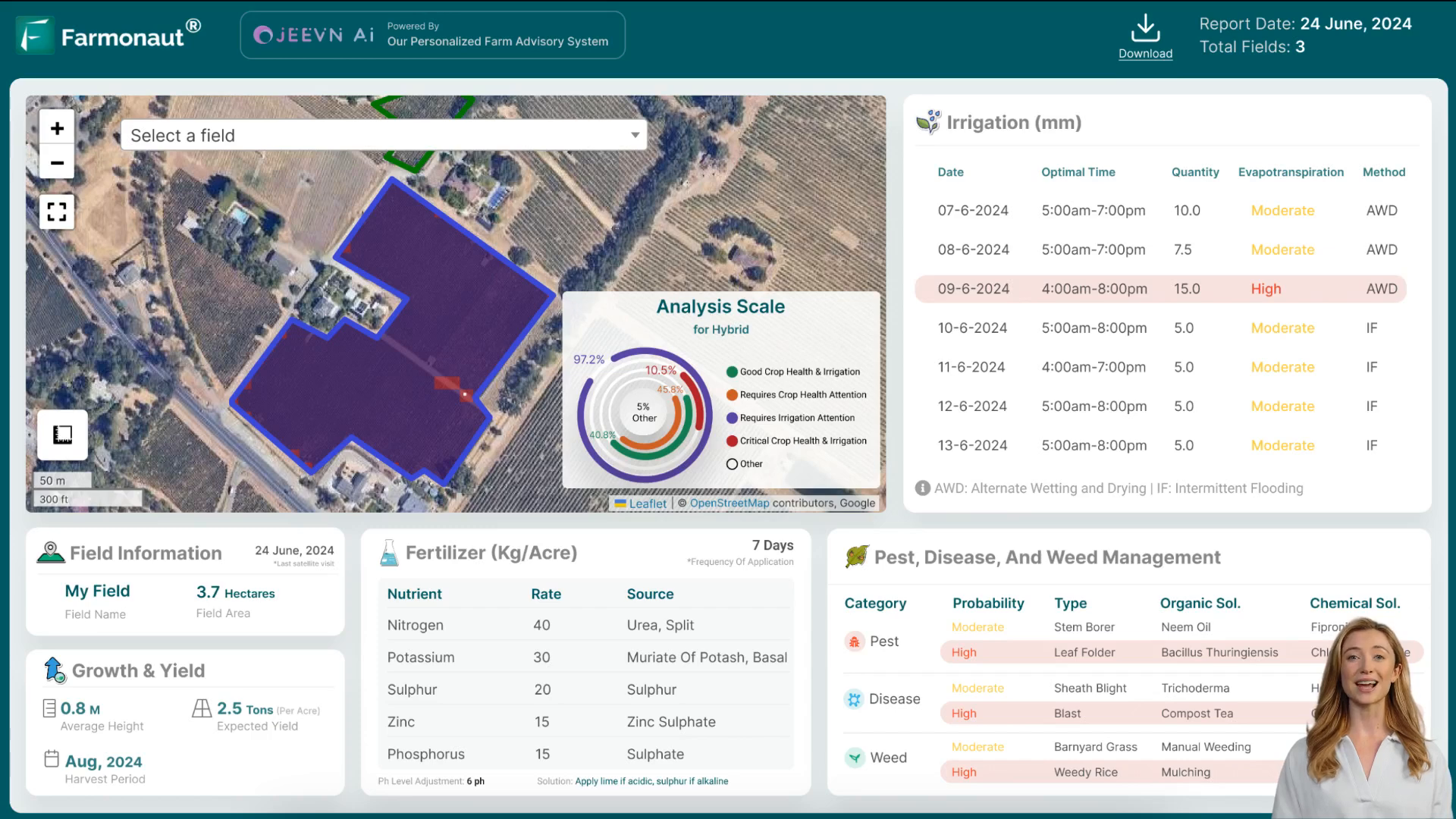
🧪 Soil Nutrient Analysis: Optimizing Arkansas’s Diverse Soil Types
Arkansas’s soils vary greatly, from the fertile lowlands of the Delta to the sandy loams of the Gulf Coastal Plain. JEEVN AI excels in providing detailed insights into soil nutrient levels, a critical factor for soybean production. The system analyzes concentrations of key nutrients:
- Nitrogen
- Phosphorus
- Potassium
- Zinc
- Sulfur
For Arkansas soybean farmers, this means receiving precise recommendations on fertilization strategies tailored to their specific soil conditions. If nitrogen levels are low in a Delta field, for instance, JEEVN AI will suggest the appropriate amount of nitrogen fertilizer to apply, ensuring optimal nutrient balance for soybean growth.
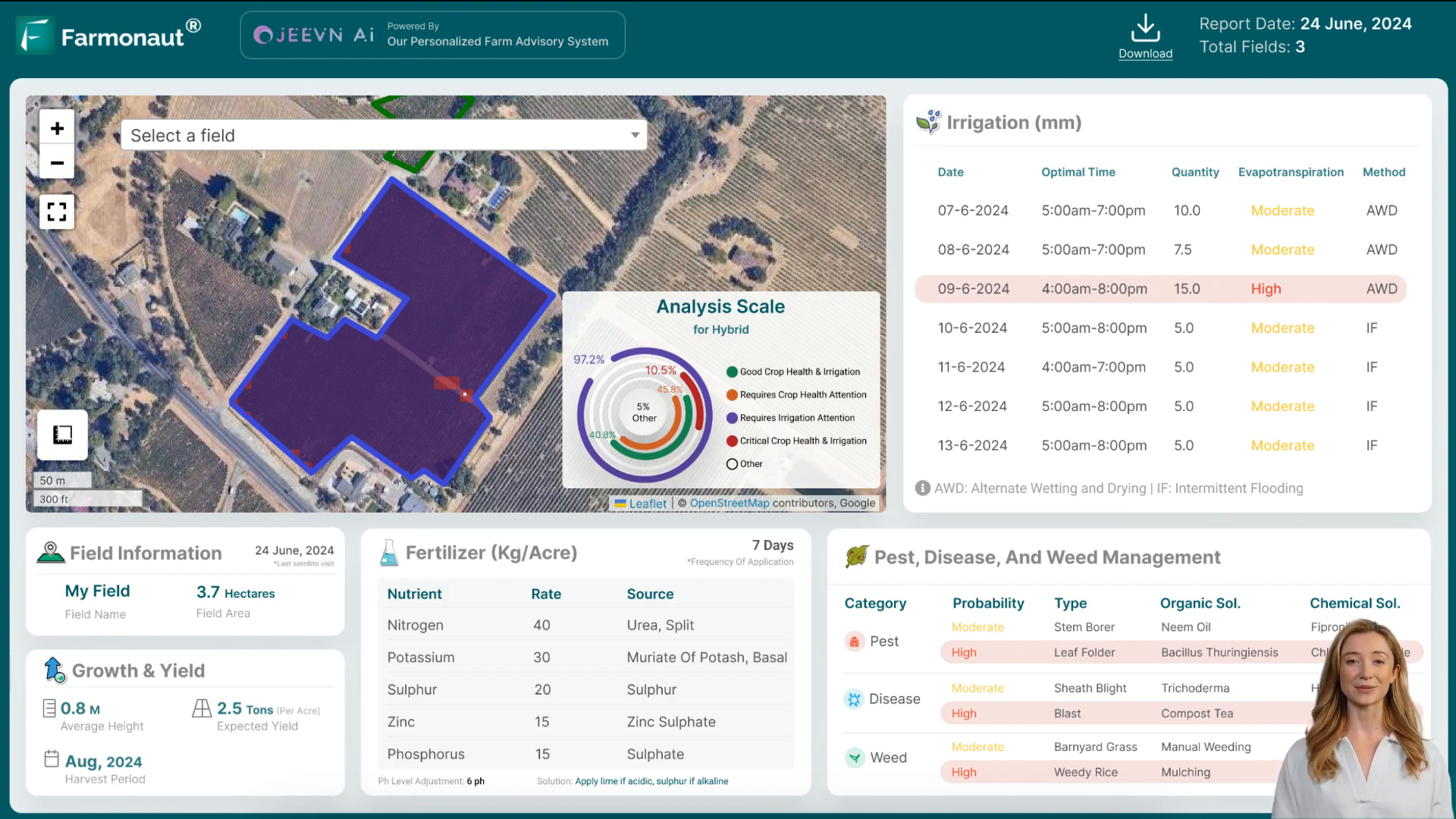
📊 Soil pH Management: Crucial for Arkansas Soybean Success
Soil pH is a critical factor in soybean cultivation, particularly in Arkansas where soil acidity can vary significantly. JEEVN AI monitors soil pH levels and offers corrective measures when needed, which is essential for maximizing nutrient availability and overall soil health.
For example, in areas of the state where soil tends to be more acidic, such as in the Ozark Highlands, JEEVN AI might recommend lime application to raise pH levels. Conversely, in regions where alkaline soils are more common, like parts of the Arkansas River Valley, the system could suggest sulfur application to lower pH.
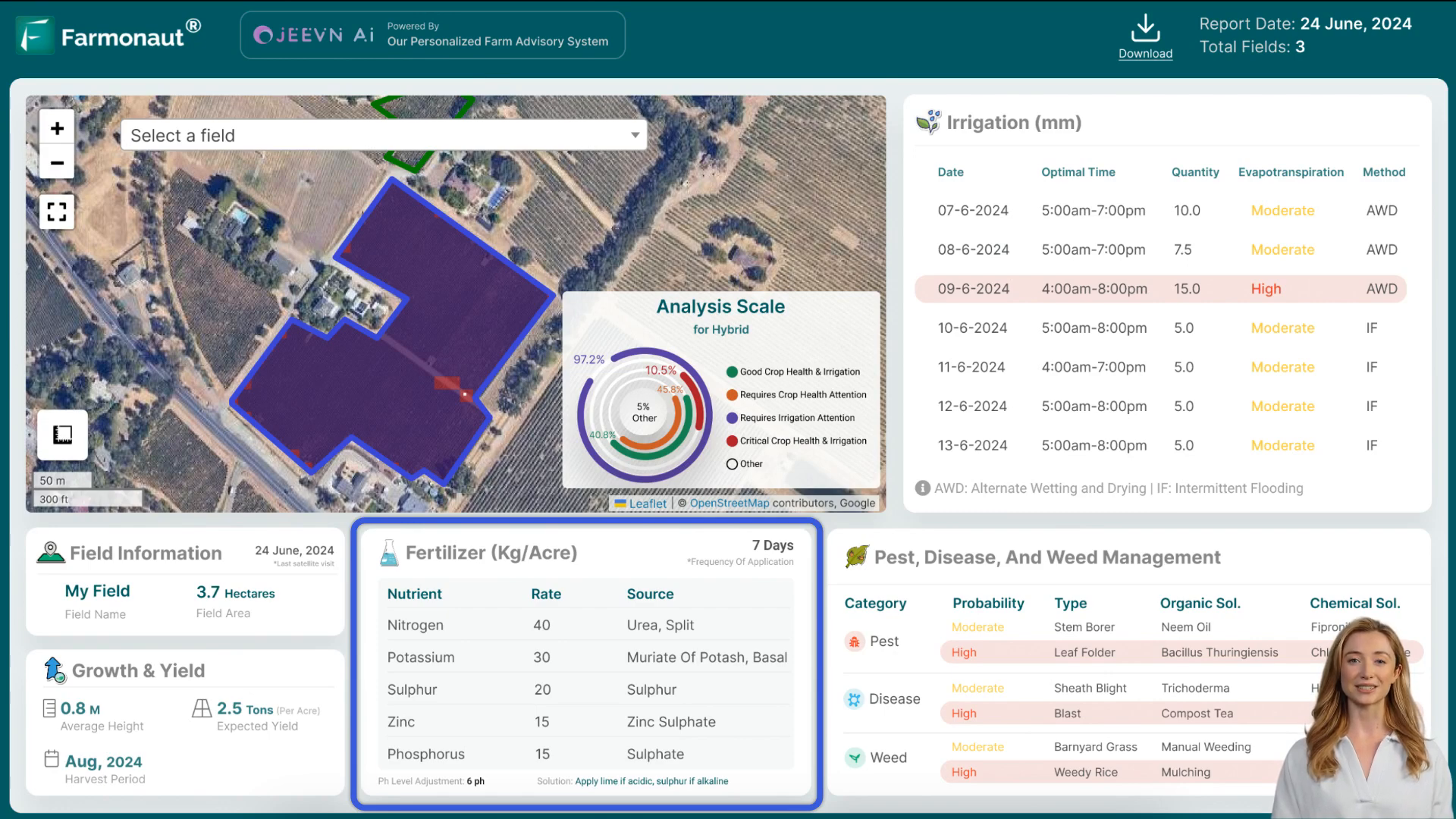
🐛 Early Pest and Disease Detection: Protecting Arkansas Soybean Crops
One of JEEVN AI’s most impressive features is its ability to identify potential pests and diseases that could affect soybean crops in Arkansas. By analyzing satellite images, weather patterns, and local data, the tool can predict pest outbreaks and suggest preventive measures.
This capability is particularly valuable for Arkansas soybean farmers who face threats from pests like the soybean looper and diseases such as sudden death syndrome. Early detection allows for targeted interventions, reducing the need for broad-spectrum pesticides and promoting more environmentally friendly farming practices.
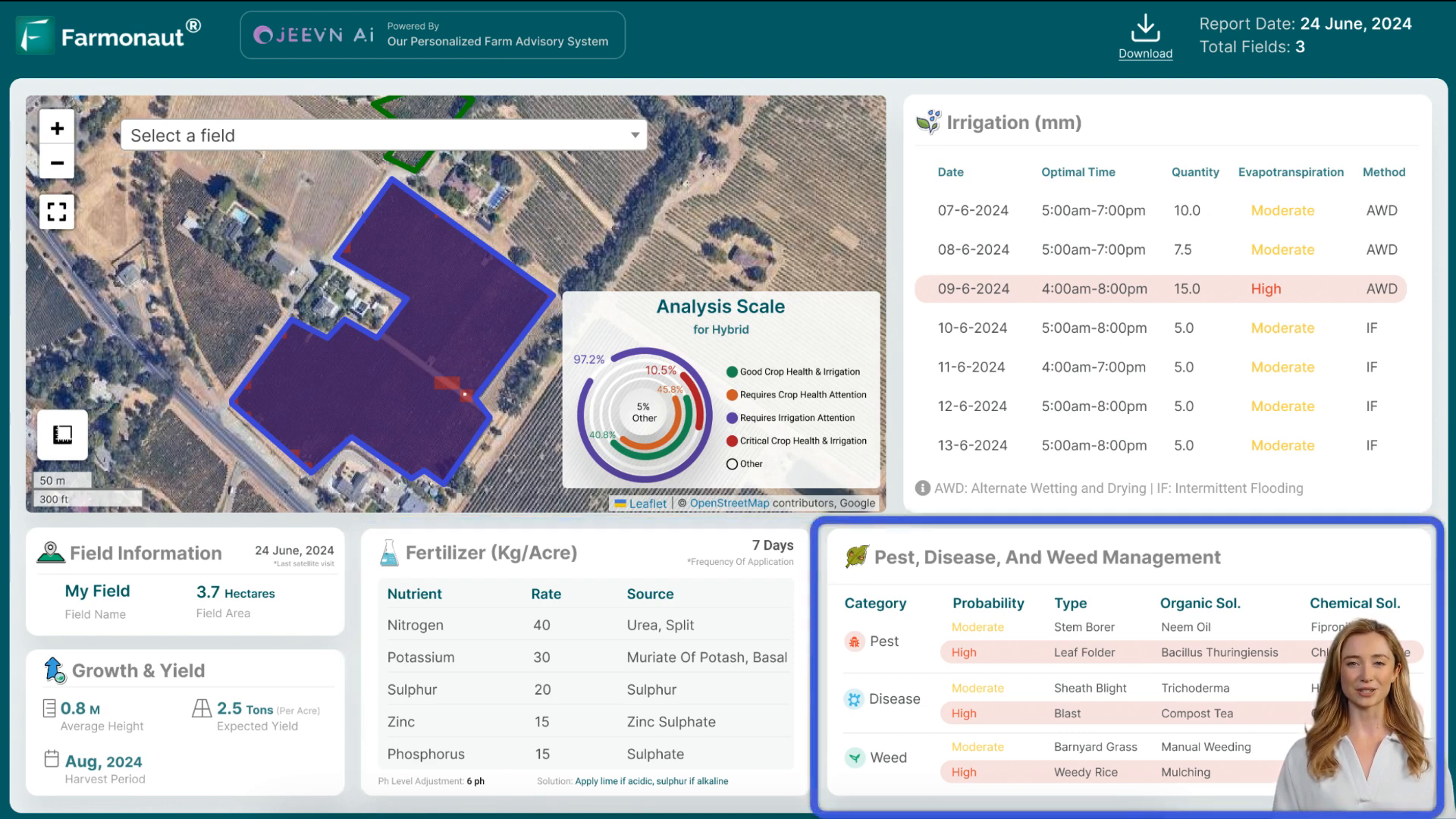
💧 Efficient Water Management: Crucial in Arkansas’s Climate
Water management is a critical aspect of soybean farming in Arkansas, especially given the state’s hot summers and occasional drought conditions. JEEVN AI uses a combination of weather data, soil moisture levels, and crop requirements to determine the optimal irrigation schedule for soybean fields.
This feature is particularly beneficial for Arkansas farmers who rely on irrigation systems, especially in the Grand Prairie and Delta regions. By providing precise recommendations on when and how much to water, JEEVN AI helps conserve water resources and prevent over or under-irrigation, ensuring that soybean crops receive the right amount of water at the right time.
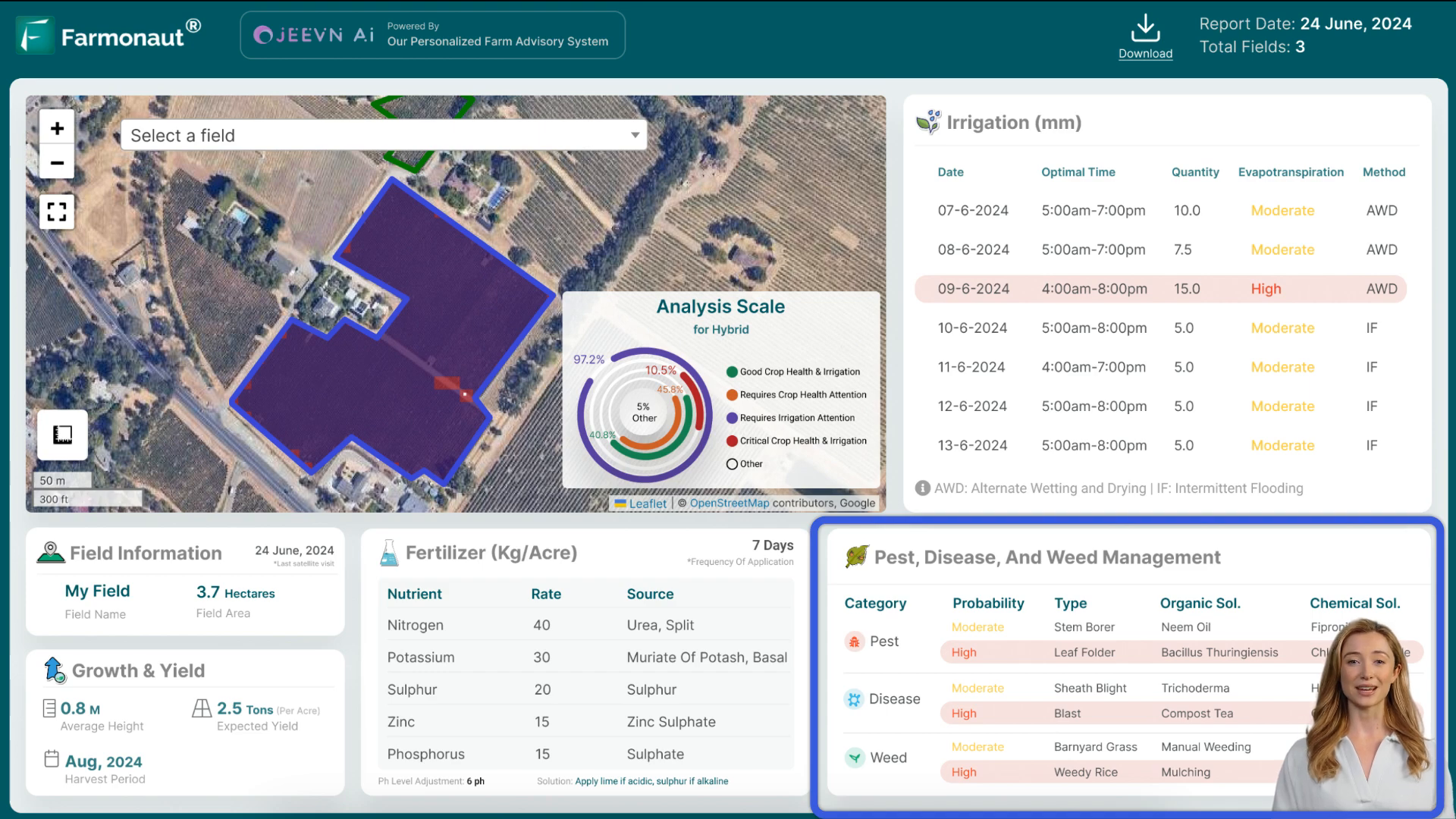
🌿 Impact on Crop Growth and Yield: Boosting Arkansas Soybean Production
The impact of JEEVN AI on soybean crop growth and yield in Arkansas is profound. By ensuring optimal soil nutrient balance, maintaining proper soil pH, and providing timely interventions for pest and disease control, the system sets the stage for healthier crops and increased yields.
JEEVN AI can forecast:
- Expected soybean plant height
- Anticipated yield per acre
- Estimated time until harvest
These predictions allow Arkansas soybean farmers to make informed decisions, enhancing productivity and enabling more efficient planning of activities throughout the growing season. With the state’s average soybean yield hovering around 50 bushels per acre, JEEVN AI’s insights could help push yields higher, potentially rivaling top-producing states.
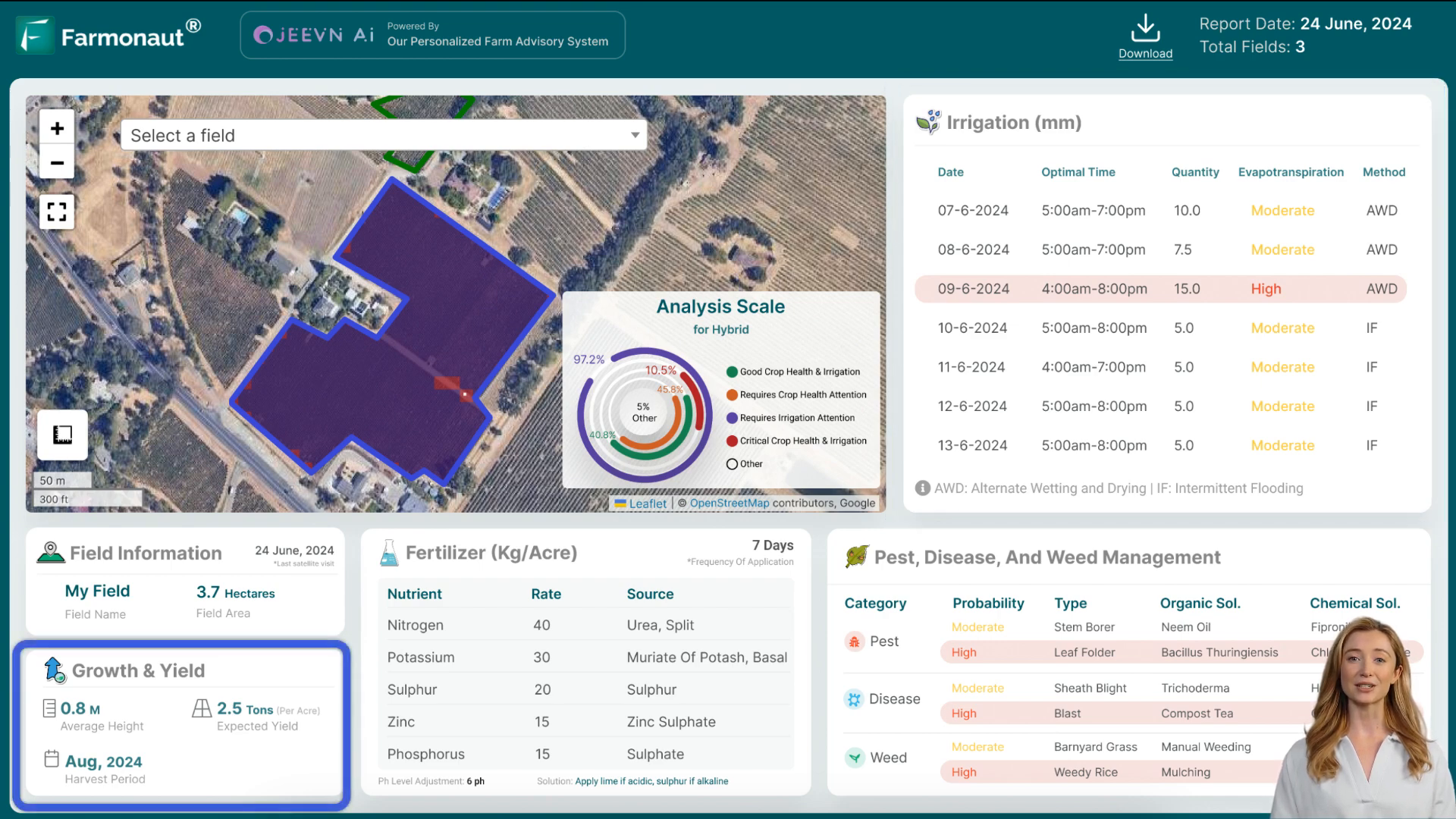
🚀 The Future of Soybean Farming in Arkansas with JEEVN AI
JEEVN AI represents more than just a farm advisory tool; it’s a game-changer for the Arkansas soybean industry. By leveraging Farmonaut’s Satellite-AI Based Farm Intelligence, JEEVN AI provides Arkansas farmers with the insights and recommendations they need to optimize their farming practices and achieve greater success in a competitive global market.
As Arkansas continues to be a leading soybean-producing state, tools like JEEVN AI will play a crucial role in maintaining and enhancing this position. The system’s ability to provide tailored, data-driven advice could help Arkansas farmers overcome challenges such as climate variability, pest pressures, and market fluctuations, ensuring the continued strength of the state’s soybean industry.

❓ Frequently Asked Questions about JEEVN AI for Arkansas Soybean Farmers
Q: How does JEEVN AI account for Arkansas’s specific climate conditions?
A: JEEVN AI integrates local weather data and historical climate patterns specific to Arkansas regions, allowing it to provide recommendations tailored to the state’s unique growing conditions.
Q: Can JEEVN AI help with Arkansas-specific soybean pests and diseases?
A: Yes, the system is designed to identify and predict outbreaks of pests and diseases common to Arkansas soybean crops, such as soybean loopers and sudden death syndrome.
Q: How does JEEVN AI’s irrigation advice adapt to Arkansas’s diverse water needs?
A: JEEVN AI considers local soil types, weather patterns, and crop water requirements to provide irrigation recommendations tailored to different regions of Arkansas, from the Delta to the Ozarks.
Q: Can JEEVN AI help Arkansas farmers comply with state and federal agricultural regulations?
A: While JEEVN AI doesn’t directly manage regulatory compliance, its recommendations for fertilizer use and pest management can help farmers align with best practices and environmental regulations.
Q: How does JEEVN AI’s yield prediction compare to traditional methods used in Arkansas?
A: JEEVN AI’s yield predictions are based on real-time data and advanced AI algorithms, potentially offering more accurate and timely forecasts compared to traditional methods.
In conclusion, Farmonaut’s Satellite-AI Based Farm Intelligence, as implemented through JEEVN AI, stands poised to revolutionize soybean farming in Arkansas. By providing precise, data-driven insights and recommendations, this innovative tool empowers Arkansas farmers to optimize their operations, increase yields, and maintain the state’s position as a leader in soybean production. As the agricultural landscape continues to evolve, embracing technologies like JEEVN AI will be crucial for the continued success and sustainability of Arkansas’s vital soybean industry.




